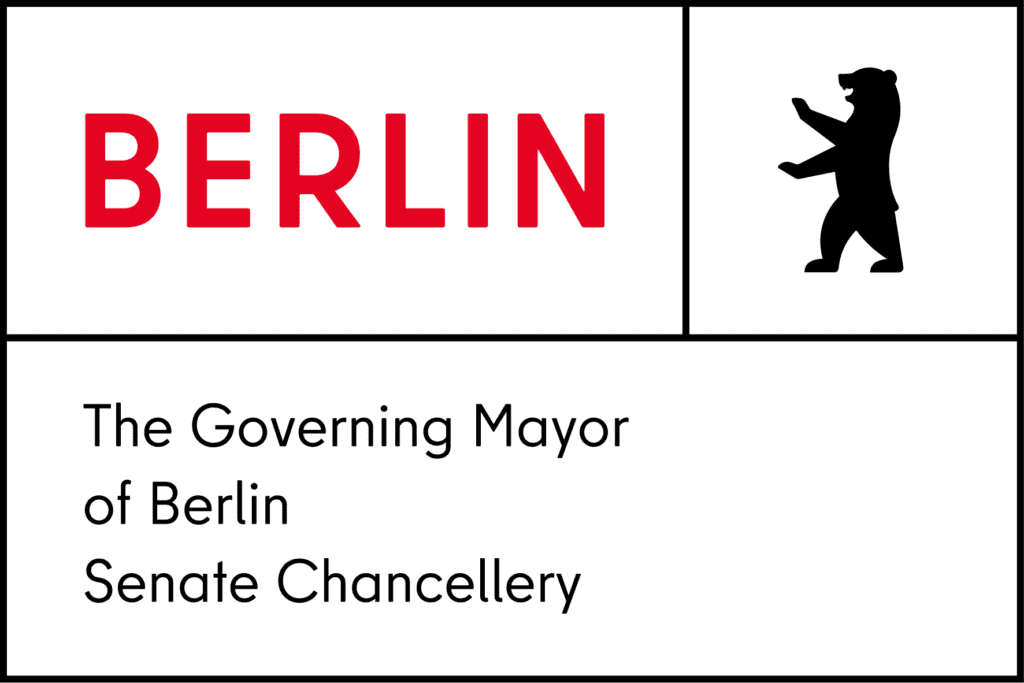Berlin is calling – and the CityLAB Summer School is answering for the fifth time. Once again, students from various disciplines and partners from the field came together to tackle the pressing urban challenges of our time. The overarching theme of this year’s Summer School was “Arriving in the Arrival City Berlin”.
The thematic focus was on examining current migration dynamics and the question of how Berlin, as a city of diversity and opportunity, can be designed to make it easier for newcomers – whether out of necessity or a desire for new opportunities – to find their way around the city. The aim of the Summer School is to develop innovative approaches that make Berlin an open, accessible and supportive place for all newcomers.
To the challenges, get set, go!
The Summer School began with a kick-off event that served as a platform for interdisciplinary exchange. Students, lecturers and partners from practice discussed the topic “Arriving in the Arrival City Berlin” from different perspectives and contextualized it in the context of current social and urban developments. Over the next ten days, students of business informatics at the HTW and public administration at the HWR worked in small, interdisciplinary teams to develop practical concepts to facilitate their arrival in Berlin. Supported by the expertise of their respective programs, they developed innovative solutions – both digital and practical – to make Berlin a real home for all newcomers.
A central element of the Summer School were the three practical challenges, each addressing a specific aspect of the process of arriving in Berlin.
Challenge 1: Online services – Accessible for all
The first challenge focused on how to make digital government services more accessible to newcomers in Berlin. The business informatics students at the HTW worked closely with the future public service experts at the HWR to develop a mobile application. The application provides multilingual, step-by-step instructions on central bureaucratic processes such as registration, residence permits, and health care.
“The biggest challenge was structuring the information in a way that was understandable for people from different cultural and linguistic backgrounds.”
Participant
In addition, a digital assistance system was designed to guide users through Berlin’s online services and remove existing barriers. The results of this challenge illustrate the potential of user-centered digitization to create more inclusive urban structures.
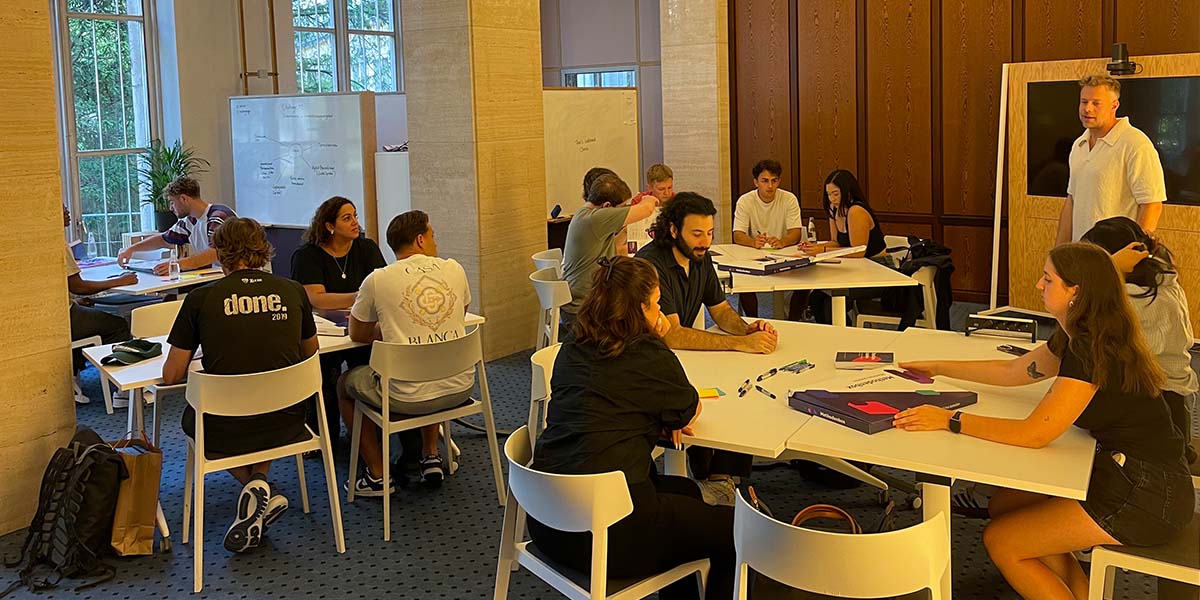
Challenge 2: Chatbot for international students
The second challenge focused on supporting international students, who often face complex bureaucratic hurdles. The students developed a chatbot prototype that answers questions on topics such as applying for a visa, enrolling at a university, and applying for a student loan. By integrating various public data sources – such as information from government portals and universities – a tool was created that directly and efficiently covers individual information needs. The main challenge was to capture the diverse needs of the international student body and translate them into a user-friendly digital format. Future developments of the chatbot will further optimize the targeted support.
Challenge 3: Data collection and analysis
The third challenge dealt with the question of why the existing online services in Berlin are so little used, despite their potential. To get to the bottom of this question, the students conducted a targeted survey of international students. They identified existing barriers to use, such as language barriers, complex user interfaces, and lack of orientation. The results show that a clear, user-centered design of digital services is a key factor in increasing their acceptance.
Impulses, inspiration and ideas: Insights behind the scenes
In addition to the intensive work phases, the Summer School offered numerous opportunities for content stimulation, creative exchange, and practical knowledge transfer. It started on the first day with a service design workshop, where the students learned theoretical concepts and practical methods for solving complex problems. The CityLAB team also organized a prototyping workshop during the first week, where participants turned their ideas into concrete, tangible solutions.
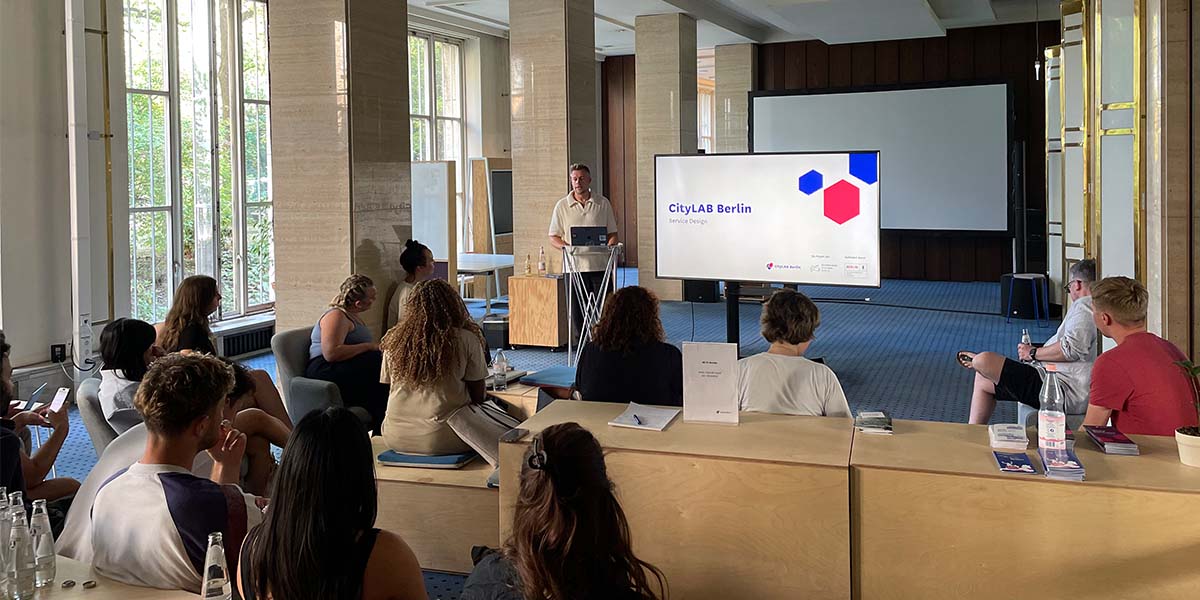
On the second day, Prof. Dr.-Ing. David Zellhöfer led a workshop on accessibility, which was of great interest due to its topicality and relevance. Many students have had little exposure to this topic, so the workshop was an important addition. The students learned about the legal and technical challenges of designing inclusive digital services and how to systematically remove barriers. These insights have been directly incorporated into further projects and prototypes.
In addition to the workshops, CityLAB also organized several keynotes with external experts who provided the students with practical insights into the topic of arriving in Berlin. The lectures provided the students with valuable impulses and inspiration for possible solutions. The lecture “Kiosk of Solidarity” by Dr. Moritz Ahlert, who presented innovative concepts for solidarity-based urban design, was particularly inspiring. The students gained new perspectives on how to make urban communities more inclusive.
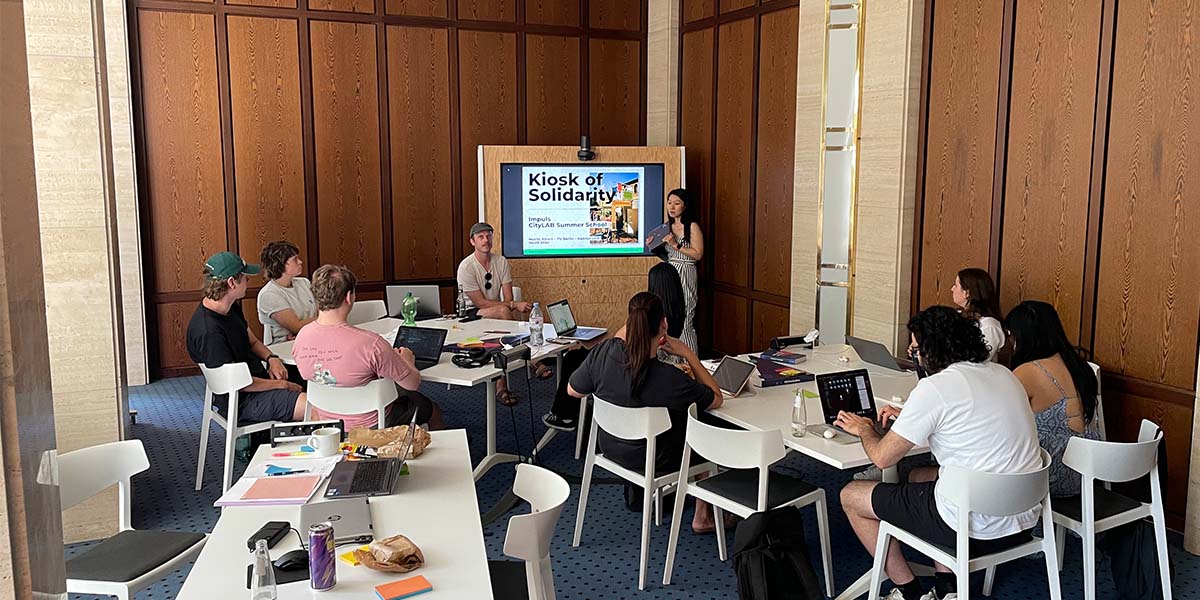
Another highlight was the presentation of the website “All About Berlin” by founder Nicolas Bouliane. This platform serves as a comprehensive source of information for newcomers and offers practical tips on everyday topics such as finding a place to live, registering and getting around in the city. The discussions focused on how such digital services can be further improved and integrated into the prototypes developed to make the start of life in Berlin even easier and more supportive. These discussions underscored the need to link existing information resources with innovative digital solutions and create holistic access to city services.
Raise the curtain: The presentation of the prototypes
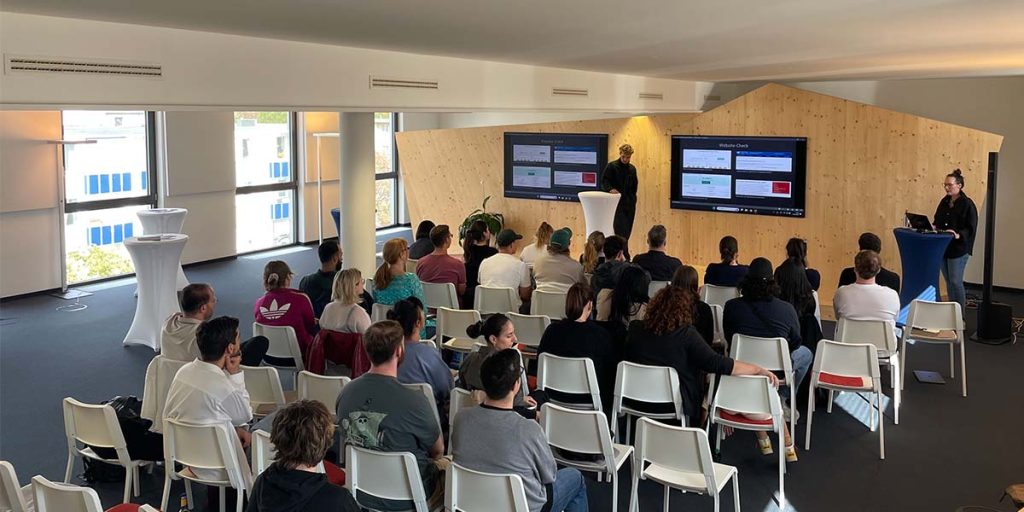
The highlight of the CityLAB Summer School was the final event on September 12th in the Audimax of the Technologiestiftung Berlin. Here, the teams presented their prototypes and answered critical questions from the experts. The diversity and creativity of the developed solutions was very impressive. The event demonstrated the importance of combining practical projects and theoretical knowledge to develop sound solutions to urban challenges.
“The Summer School has once again demonstrated that innovative approaches and interdisciplinary collaboration can bring about concrete change.”
Prof. Dr. Olga Willner, HTW Berlin
We look forward to following the development of the projects and sharing the final results with you. This year’s Summer School has impressively demonstrated that Berlin is a center of innovation and community – a place where every newcomer has the chance to actively participate in shaping a better future. The students’ creative ideas and enthusiasm show that positive change is possible and that Berlin will continue to be an inspiring place for change.
The journey has only just begun – stay tuned and join us on the road to a more inclusive and accessible city!
More information about the Summer School at CityLAB Berlin can be found here.
To the project documentation as One-Pagers (in German):
1. Project: Online services – Accessible for all (Services und Dienstleistungen Berlin / Easy Immigration)
2. Project: Chatbot for international students (Chatbot LIA / Berlin Buddy 1 / Berlin Buddy 2)
3. Project: Data collection and analysis (Auswertung Survey / Github)
If you have any questions or would like to find out more:
